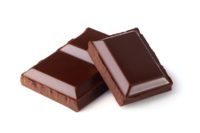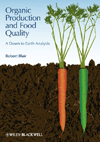Mars, Inc. develops way to quantify cocoa flavanols
First validated method for analyzing flavanols and procyanidins could help standardized reporting


|
|
Photo of cocoa pods provided by Mars, Inc. |
The latest research project from Mars Inc., could one day lead to flavanol counts on candy bar wrappers.
Mars, Inc., working in partnership with AOAC International, has successfully completed a multi-laboratory, first-of-its-kind validation of a method for analyzing flavanols and procyanidins in cocoa-based products.
The study, just published in the latest edition of the Journal of AOAC International, details the results of a comprehensive evaluation of this method by 12 international laboratories, which included academic, industrial and commercial institutions.
As it has been proved to be reproducible, robust, and readily transferable, this method could have far-reaching implications for researchers and consumers.
Catherine Kwik-Uribe, study author and R&D director at Mars Botanical.says the research could one day help consumers compare and contrast products and even help regulators evaluate claims about flavanols.
Flavanols are a group of natural compounds that are particularly abundant in cocoa. Over the past decade, there has been growing interest in the potential cardiovascular and cognitive health benefits of flavanol and procyanidin-containing foods.
For example, in July, the European Food Safety Authority (EFSA) issued a positive Scientific Opinion on the health benefits of cocoa flavanols and procyanidins related to healthy blood flow.
Though these phytonutrients are of great scientific and consumer interest, until now there has been no common, validated approach to the analysis of these compounds in foods. As a result, different laboratories and companies have used different methods to report content, leading to irregularity.
Moreover, many of the commonly used methods typically overestimate the true levels of these compounds in foods, including cocoa products.
This work was supported by Mars, Inc. and is part of a wider collaborative research program focused on the health benefits of cocoa flavanols.
Using this knowledge, Mars scientists have developed a proprietary, patented Cocoapro process that helps to retain the flavanols found naturally in the cocoa bean, which are usually destroyed during normal processing.
Looking for a reprint of this article?
From high-res PDFs to custom plaques, order your copy today!









